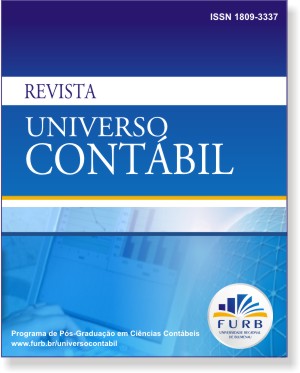FINANCIAL ACCOUNTING STATEMENTS OF BRAZILIAN NON PROFIT ORGANIZATIONS: AN INVESTIGATION INTO ACCOUNTING TERMINOLOGY
DOI:
https://doi.org/10.4270/ruc.20095Keywords:
ONG, Terminologia contábil, Prestação de contas.Abstract
The role of Non-Governmental Organizations, also known as Non-Profit Organizations (NPOs), seems to have grown significantly in recent years in modern society, frequently substituting or complementing the governmental role. In Brazil this is no different. This study aims at investigating the accounting terminology used by these entities, to account for their activities, and the degree of adherence of their financial statements to the Brazilian Accounting Board (CFC)’s rules, defined specifically for these organizations. The sample includes only typical NPOs, that is, the ones with the mission to promote welfare and citizenship, by working with philanthropy, health care, civic actions, human rights, voluntary actions promotion, cultural actions, environmental care, and similar. From these, only those who disclosed their accountability financial statements through their homepages were selected. From 269 homepages visited, only 31 had some kind of accounting related statements. The analysis reveals that the accounting terminology used by the NPOs is not standardized. In some cases this can compromise the information’s legibility or impair the comparability with others NPOs financial statements. Moreover, there is a low level of adherence to the CFC´s rules designed by/for the NPOs (NBC-T-10.19 and 10.4). The majority of the NPOs in the sample use the accounting terminology defined, by Brazilian legislation, to that dedicated to the profitable organizations (especially the law for firms which operate on the stock market).
Downloads
Downloads
How to Cite
Issue
Section
License
The copyright for papers published in this journal belong to the author, with rights of first publication for the journal. As the papers appears in this publicly accessed journal, the papers are for free use, receiving their credit, in educational and non-commercial uses. The journal will allow the use of the papers published for non-commercial purposes, including the right to send the paper to publicly accessed databases.


